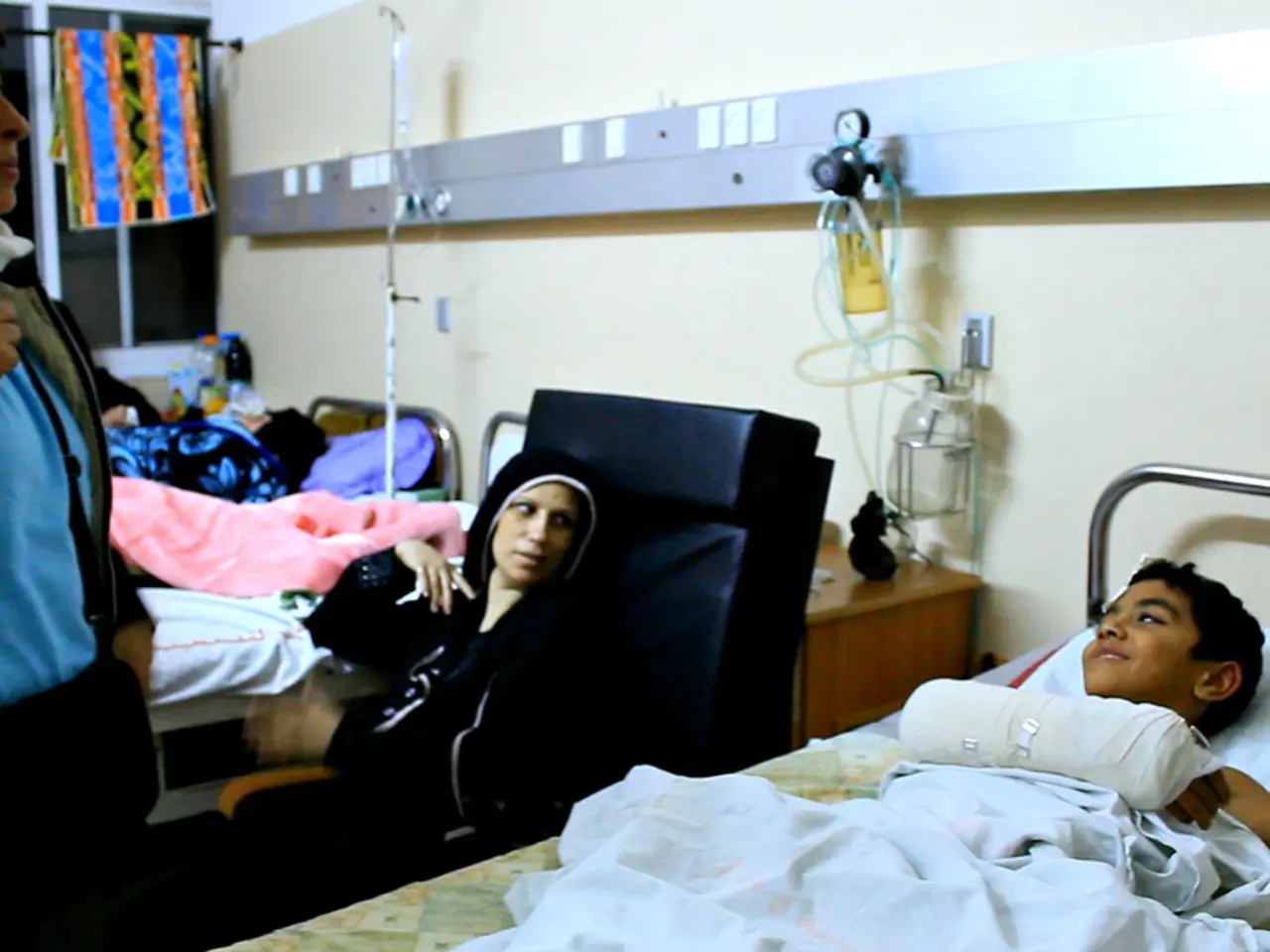International prospects and obstacles for international healthcare practitioners
In the heart of Bavaria, the city of Ingolstadt and Ingolstadt Hospital recently hosted an informative event aimed at facilitating the integration of migrants with foreign qualifications in the medical field. The three-hour event, organised by Andreas Michel, head of the health region plus business office at the health department, Barbara Blumenwitz, integration guide at the social affairs office, and Ingolstadt Hospital, provided a valuable opportunity for exchange and networking.
Dr. Monika Harsch, project management medicine staff, offered a presentation and tour of the hospital, providing practical insights from the hospital's perspective. The event was well-attended, with key figures such as Dr. Stephan Steger, the director of the clinic for acute and emergency medicine, and Prof. Dr. Hans-Georg Palm, the director of the center for orthopedics and trauma surgery, present to answer questions.
The event aimed to address the challenges faced by foreign medical professionals in integrating into the German healthcare system and to ease this process by exchanging experiences with established international professionals and networking those in the recognition process. Both Dr. Steger and Prof. Palm emphasised the importance of foreign medical professionals in healthcare and the benefits of multilingualism in treatment.
Milosh Gjelikj, a doctor in the emergency room, shared information about the medical recognition process, while Linda Qasem, MiMi coordinator at the Network for Work and Social Affairs (NefAS e.V.), offered valuable insights into the German healthcare system.
Germany's approach to integrating foreign medical professionals is multifaceted. Transcultural and linguistic support, educational programs for international professionals, structured language and licensing exams, and proactive recruitment are key components of this strategy. The University of Medicine in Hamburg (UMCH), for example, attracts students from over 50 countries, providing them with early clinical practice and theoretical education, and supporting their integration into the German workforce.
Foreign medical professionals must pass the Fachsprachprüfung (FSP), a German medical language proficiency exam, to work in Germany. Programs and courses provide targeted preparation for this exam, supporting integration into clinical practice and career development.
German healthcare actively recruits nurses and doctors from countries like the Philippines and India, showcasing career opportunities and simplifying pathways to employment in German hospitals. This commitment to integration is evident in the "Dein Einsatz" project, which deploys newcomers with medical knowledge as voluntary helpers.
The organisers of the Ingolstadt event are pleased to have contributed to the integration of foreign doctors and medical professionals into the healthcare system. The goal of the event was to show perspectives and development opportunities, support professional integration, and strengthen ties to the region. The exchange and networking will continue through the "Dein Einsatz" project for interested parties.
In conclusion, Germany's approach to integrating foreign medical professionals is robust and comprehensive, providing a conducive environment for foreign medical careers. The event in Ingolstadt serves as a testament to this commitment, offering valuable insights into the integration process and the opportunities available for foreign medical professionals in Germany.
- The city of Ingolstadt and Ingolstadt Hospital hosted an event aimed at integrating migrants with foreign qualifications in the medical field, specifically focusing on addressing challenges faced by foreign medical professionals in integrating into the German healthcare system.
- Dr. Monika Harsch, along with key figures such as Dr. Stephan Steger and Prof. Dr. Hans-Georg Palm, provided practical insights and answered questions about the integration process at the event.
- Germany's strategy for integrating foreign medical professionals includes transcultural and linguistic support, educational programs, structured exams, and proactive recruitment, with the University of Medicine in Hamburg being a notable example.
- The "Dein Einsatz" project, which deploys newcomers with medical knowledge as voluntary helpers, is an example of Germany's commitment to integrating foreign medical professionals and supporting their career development.




